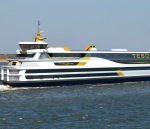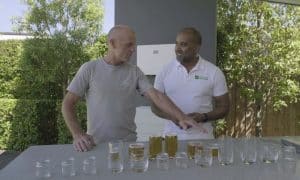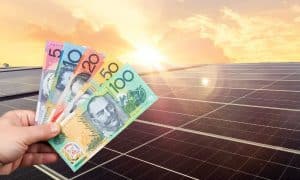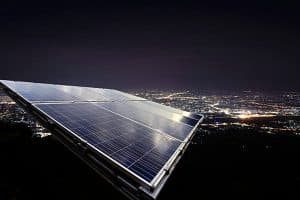The 1,750-passenger, 350-vehicle, double ended ferry Texelstroom will be a unique craft.
Featuring two independent engine rooms, one will be fitted with two ABC diesel engines and the other with two ABC dual fuel engines; both 2 x 2000 kW.
The dual fuel engines will start in diesel mode, but change over to dual fuel after a few minutes and its envisioned the ferry will operate mainly on natural gas. The Texelstroom will be able to achieve speeds of of 10 knots (economy) and 15 knots (maximum).
The craft will also feature a 700m² array of solar panels and a deep cycle battery bank; which will deliver auxiliary power.
Ordered by Royal N.V. Texels Eigen Stoomboot Onderneming (TESO), the ferry will be constructed at the LaNaval Shipyard in Spain.
Texelstroom will be delivered end of 2015, followed by four months of final commissioning and training before entering service. The ferry will operate daily from Den Helder and Texel in North Holland, the Netherlands.
“Winning the contract for this highly innovative ferry demonstrates LR’s ability to help shipowners manage the introduction of new technology with confidence,” said John Hicks, VP for Global Passenger Ships, Lloyd’s Register .
“Our teams in Spain and the Netherlands helped the client in delivering solutions to the engineering and regulatory challenges involved in this exciting contract. This is a robust design with the ability to operate in safety and efficiency in all conditions.”
TESO’s efforts towards sustainability go beyond the Texelstroom.
“Every day TESO sails across the beautiful yet vulnerable Wadden Sea. We therefore aim at further increasing sustainability in our services,” states the TESO web site.
The firm says it was the first shipping company in the world to trial the comparatively cleaner GTL diesel in 2007; which is virtually free of sulphur and aromatics. GTL stands for Gas To Liquids – a process that converts natural gas to petrol or diesel fuel.
TESO says that since 2008, the company has been able to reduce its carbon emissions by 30% through the use of bio-diesel and a special additive.
Other sustainability efforts include the use of waterless urinals on the ferry Dokter Wagemaker; which TESO says has led to annual savings of 150,000 litres of potable water.







































